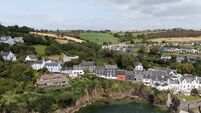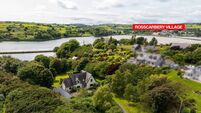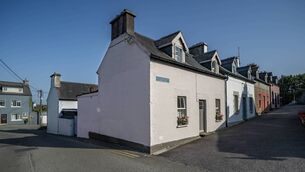Wed, 22 Apr, 2020 - 20:40
Tommy Barker
Additional reporting by Catherine Shanahan
WHAT a roll call: Debenhams, Laura Ashley, Oasis, Warehouse, Easons, Argos.
Already a subscriber? Sign in
You have reached your article limit.
Subscribe to access all of the Irish Examiner.
Annual €130 €80
Best value
Monthly €12€6 / month
Introductory offers for new customers. Annual billed once for first year. Renews at €130. Monthly initial discount (first 3 months) billed monthly, then €12 a month. Ts&Cs apply.
CONNECT WITH US TODAY
Be the first to know the latest news and updates
Retail sectorPlace: Cork's St Patrick's StreetPlace: Cork CityPlace: St Patrick StreetPlace: CorkPlace: MunsterPlace: Mahon PointPlace: IrelandPlace: BritainPlace: UKPlace: Wilton Shopping CentrePlace: Limerick’sPlace: O’Connell StreetPlace: Cork’sPlace: Patrick StreetPlace: Oliver Plunkett StreetPerson: Catherine ShanahanPerson: Laura AshleyPerson: RochePerson: Richard RocheEvent: War of IndependenceOrganisation: Rochest StoresOrganisation: DebenhamsOrganisation: OasisOrganisation: WarehouseOrganisation: EasonsOrganisation: ArgosOrganisation: British AuxiliariesOrganisation: Roches StoresOrganisation: DebenhamsPatrickStClosed220420a_large.jpgOrganisation: DebenhmansOrganisation: St Patrick’s StreetOrganisation: DebenhamsRochesStores_large.jpgOrganisation: SuperValuOrganisation: ColliersOrganisation: Debenhams’Organisation: RochesOrganisation: City LibraryOrganisation: Covid-19Organisation: PenneysOrganisation: Roches StoreOrganisation: Brown ThomasOrganisation: RochesStoresCorlBAndW_large.jpg











